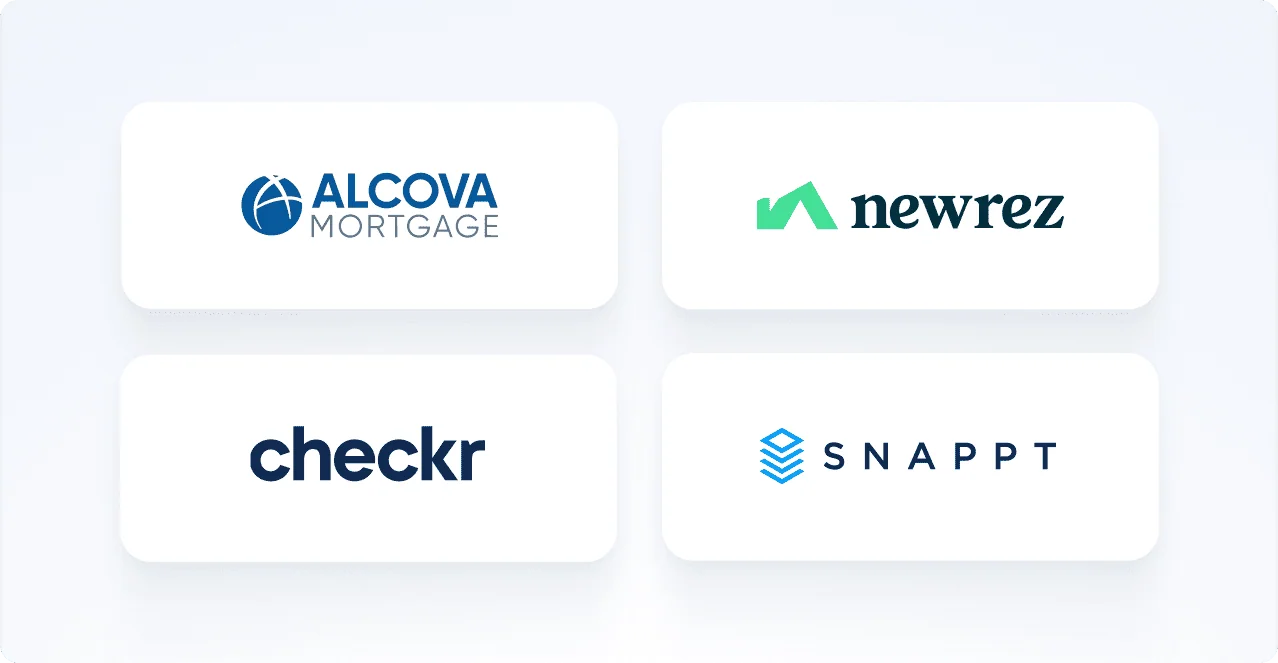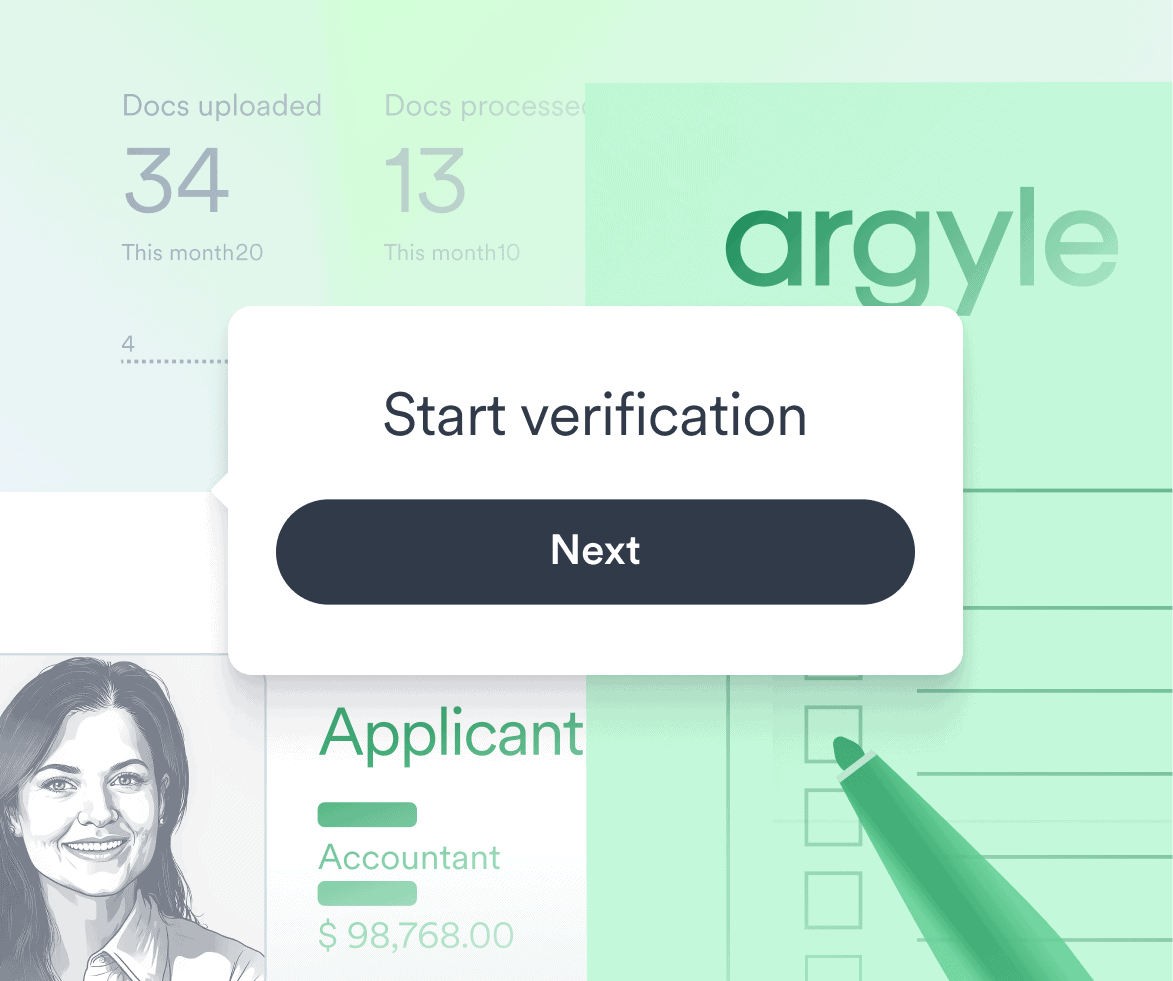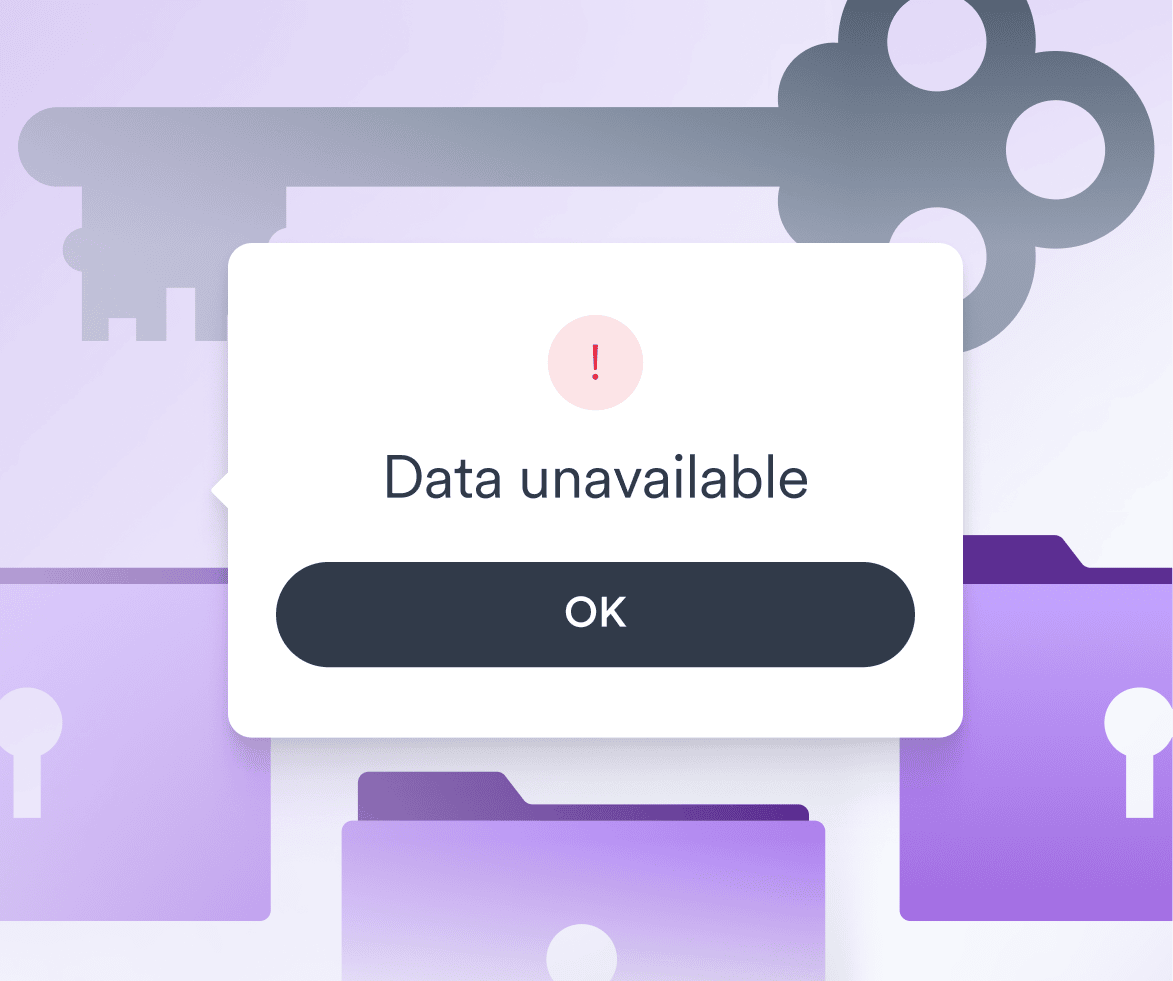The Benefits of Using Non-FCRA Data to Verify Income & Employment
How secure, alternative data sources can help you make more confident credit decisions
For lenders and other financial institutions (FIs), there are certain benefits to using data supplied by consumer reporting agencies (CRAs) and regulated by the Fair Credit Reporting Act (FCRA).
For one thing, FCRA-regulated data provides deep insights into a consumer’s creditworthiness, and the FCRA guarantees certain rights in connection with how CRAs and FIs use and share consumers’ data. In particular, the FCRA specifies what types of data CRAs can include in consumer reports and how FIs can permissibly use those reports to extend or withhold credit.
The FCRA does not, however, require that FIs use only FCRA-governed data when making credit decisions—and doing so would greatly reduce the efficiency and accuracy of their underwriting. Sensibly, the FCRA acknowledges that FIs can use data reported directly by the consumer when deciding whether or not to extend credit. This allows FIs to include rules based on information like monthly gross income or length of employment in their decisioning models, even though credit bureaus do not consistently nor accurately provide either of those data points.
Below, we explore how non-FCRA income and employment data sources—like Argyle—can help FIs include additional attributes in their decision matrices, enabling them to build more sophisticated lending models and make smarter credit decisions that lower their overall risk.
Leveraging non-FCRA data
Historically, to verify self-reported information like income or employment history, FIs have had to rely on time-consuming manual tasks (like calling an applicant’s employer) or on outdated, potentially inaccurate data supplied by a CRA. This can slow down the underwriting process and lead to risky credit decisions hinged on limited insights.
For FIs, the biggest benefit of using non-FCRA data is the ability to access live, consumer-permissioned payroll records.

Not only does that automate the verification process, it provides granular visibility into consumers’ income and employment. That empowers FIs to build specific rules—like thresholds for payment-to-income (PTI) or debt-to-income (DTI) ratios—into their decision matrices, so they can manage their credit risk with confidence.
Additionally, using non-FCRA data allows FIs to avoid the many operational requirements the FCRA imposes on institutions that use CRA-supplied data to deny a consumer a loan or a job. FIs that use exclusively CRA-supplied data in their decisioning process must take on additional procedural burdens and operational complexity, compared to those who consider consumer-reported information.
In other words, leveraging non-FCRA data can help FIs:
Eliminate FCRA-imposed operational hurdles, including complex processes like adding new sources and credit rules to notice of adverse action (NOAA) policies and practices, handling consumer credit disputes, and making changes to written disclosures
Reduce risk of failing to comply with the FCRA’s many rules and regulations—especially when working with a CRA that isn’t able to meet them effectively
Is Argyle a CRA?
The short answer is, no. Argyle is not a consumer reporting agency as defined by the FCRA.
The longer answer is, although we’re not bound to the FCRA’s regulations, our practices are materially consistent with its requirements and at least as protective of consumer data—if not more.
As a consumer-permissioned payroll connectivity platform, Argyle enables consumers to share their own income and employment data with FIs by connecting each consumer’s payroll account to the FI’s point of sale (POS) or loan origination system (LOS). In this way, Argyle provides the same types of data consumers would otherwise input on a loan application form—only ours is fully automated, pre-verified, and delivered in real time, straight from the source.
Unlike credit bureaus and some CRAs, which buy, aggregate, and sell data without consumers’ knowledge or consent, consumers participate in Argyle’s process and offer their information willingly and directly.
By empowering consumers to participate in the process, Argyle and other non-FCRA data sources help build transparent, trust-based relationships that drive higher engagement and lifetime value. We also unlock continuous, real-time access to financial insights that can help FIs build more tailored customer experiences, innovative use cases, and next-generation products.
On top of that, Argyle has documented policies and procedures in place to handle anomaly identification, investigation, prioritization, remediation, and monitoring. Our P&Ps are overseen by a data quality team with 40+ members and have been vetted by large, publicly traded clients and GSEs—including Fannie Mae.
Some payroll connectivity platforms claim to be CRAs
While some income and employment data providers claim to be CRAs offering FCRA-compliant data, it’s important to keep in mind that working with a CRA that doesn’t meet its FCRA obligations and other requirements can introduce significant risk for a partnering business.
Before making a decision to work with any self-proclaimed CRA, FI teams should understand:
Who is acting as the furnisher of the CRA data, and does that purported furnisher meet related statutory and regulatory standards, as well as all applicable requirements under the FCRA and the Federal Trade Commission (FTC)?
Does the CRA have all policies and procedures required by the FCRA in place, and are they all publicly available to consumers as required by law?
How would the CRA deal with the results of an inconclusive investigation into information reported on a consumer?
The answers to these questions (and more) can have a significant impact on an FI’s standing. The FCRA states that any person or entity that willfully fails to comply with any requirement is liable for the damages incurred by each consumer, plus a fine of $100 to $1,000, punitive damages as determined by a court, and attorney fees, as applicable.
That means working with a CRA that can’t meet its responsibilities under the FCRA could result in significant operational costs and compliance risks—which just aren’t worth taking when the same data (or better) is available through a non-CRA source.
The bottom line
Working with a CRA and with FCRA-regulated data offers an immediate sense of reassurance, but it also comes with a long list of requirements that must be followed steadily to keep an organization risk-free.
When it comes to verification of income and employment, consider using a secure, non-FCRA data source that provides greater efficiency and operational relief, with just as much peace of mind.
Learn more about consumer-permissioned payroll connections
Reach out to one of our data experts to learn more about Argyle Income & Employment Verification solutions—or sign up for a free account to try them out for yourself.










